journal
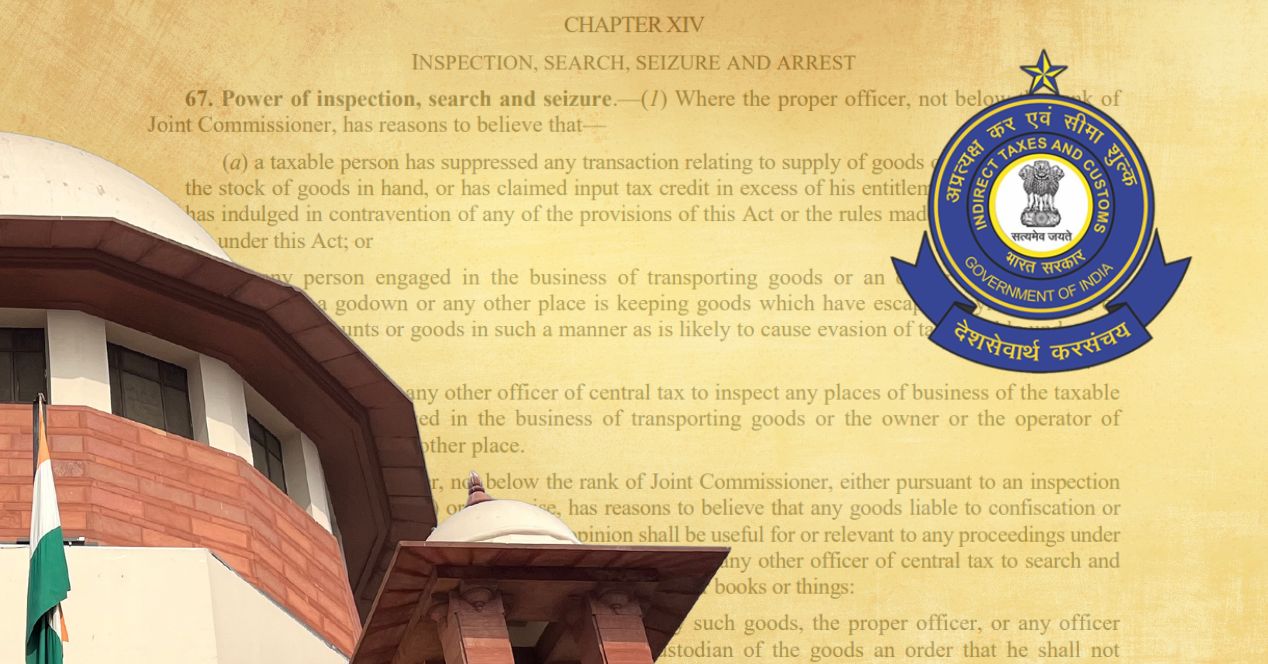
Analysis
SC calls for stricter regulation of warrantless arrests by revenue officers
The Court held that CrPC provisions apply to arrests under GST and Customs laws while clarifying that revenue officers are not “police"
18th Mar 2025
More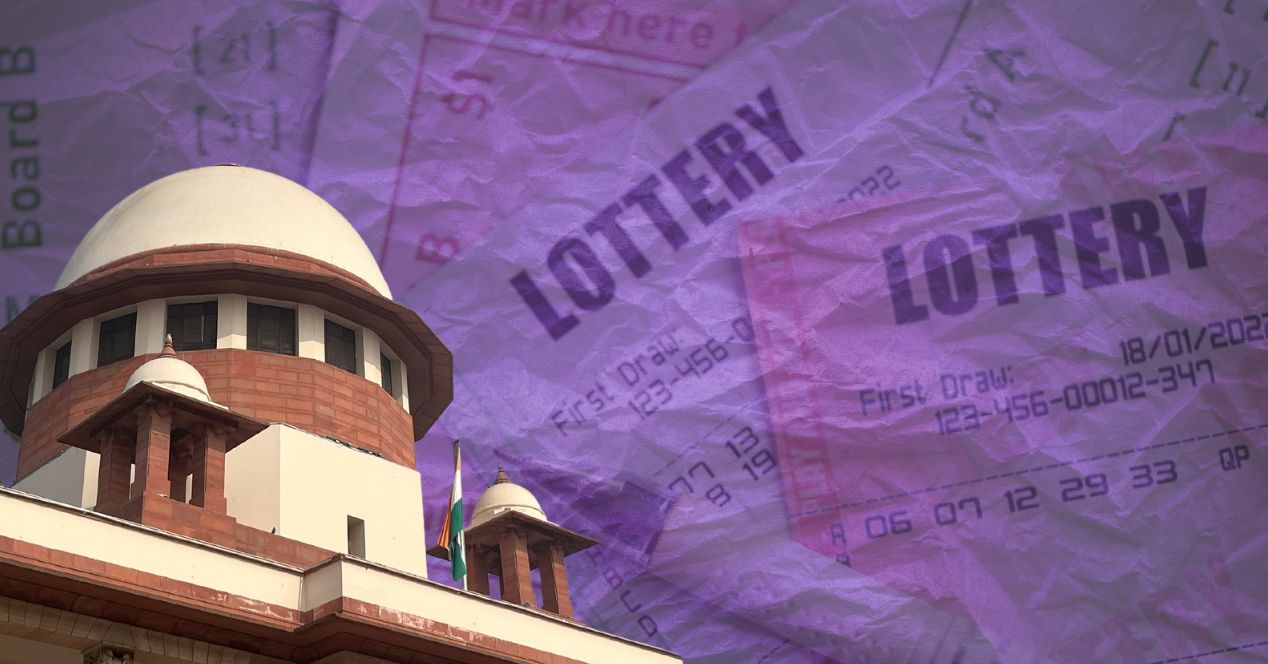
Analysis
Sikkim lottery distributors win service tax case in Supreme Court
The verdict cements states’ control over lottery taxation, closing a long saga of the Union trying to impose service tax on distributors
17th Feb 2025
More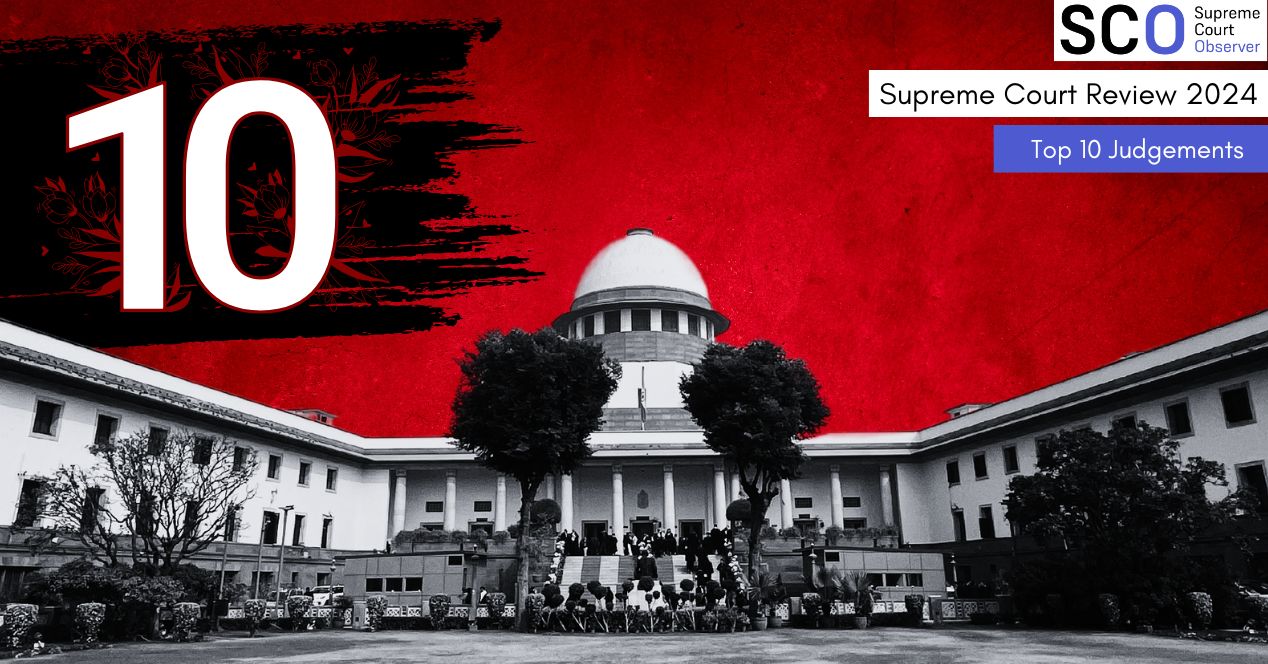
Analysis
Supreme Court Review: Top 10 judgements of 2024
Among the many landmark decisions of this year, we pick the ones that could potentially impact large constituencies of the population
20th Dec 2024
More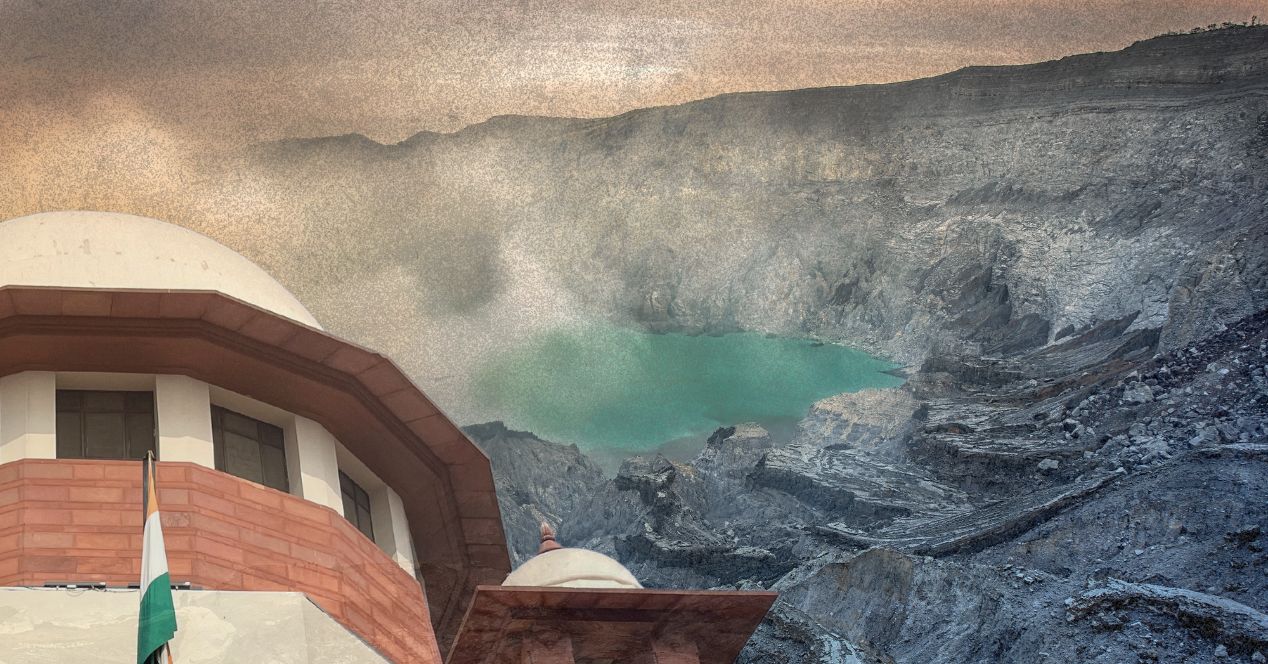
Analysis
‘Race to the bottom’: The possible consequences of the mineral royalty judgement
The retrospective application of the decision to allow states to tax mines and minerals could have first- and second-order economic impacts
23rd Aug 2024
More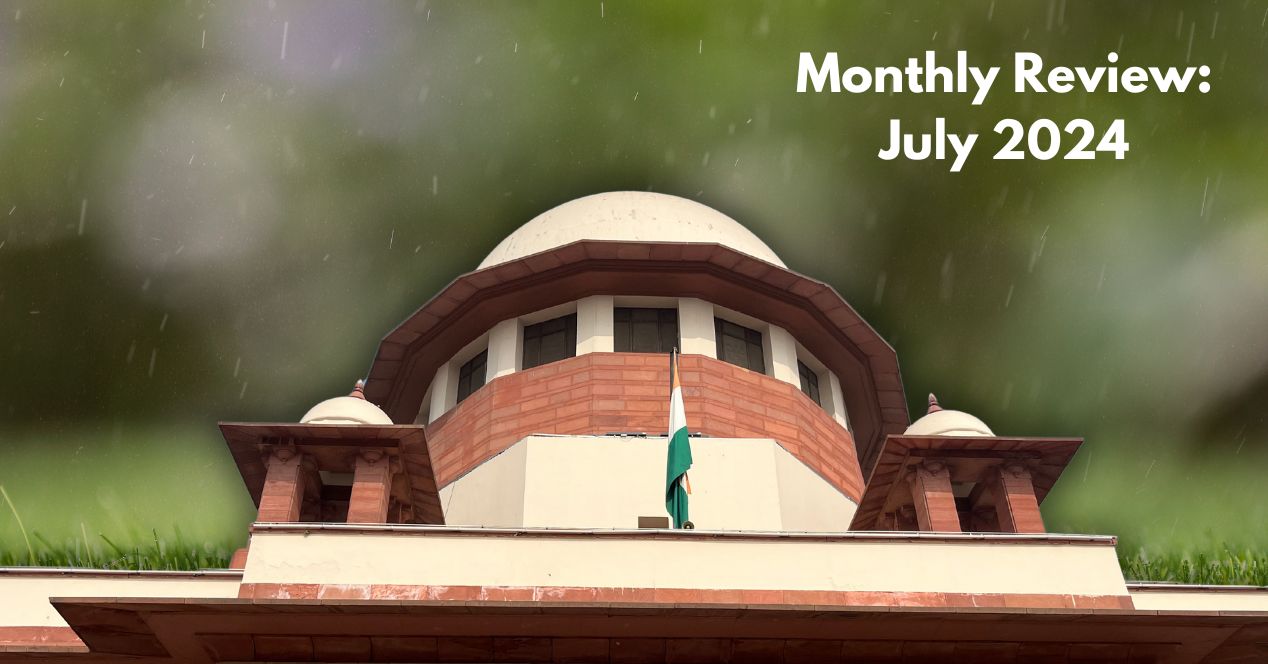
Analysis
Monthly Review: July 2024
In July, after summer vacation, the top court closed a long-pending case on mineral royalty and denied a retest of the 2024 NEET UG exam
16th Aug 2024
More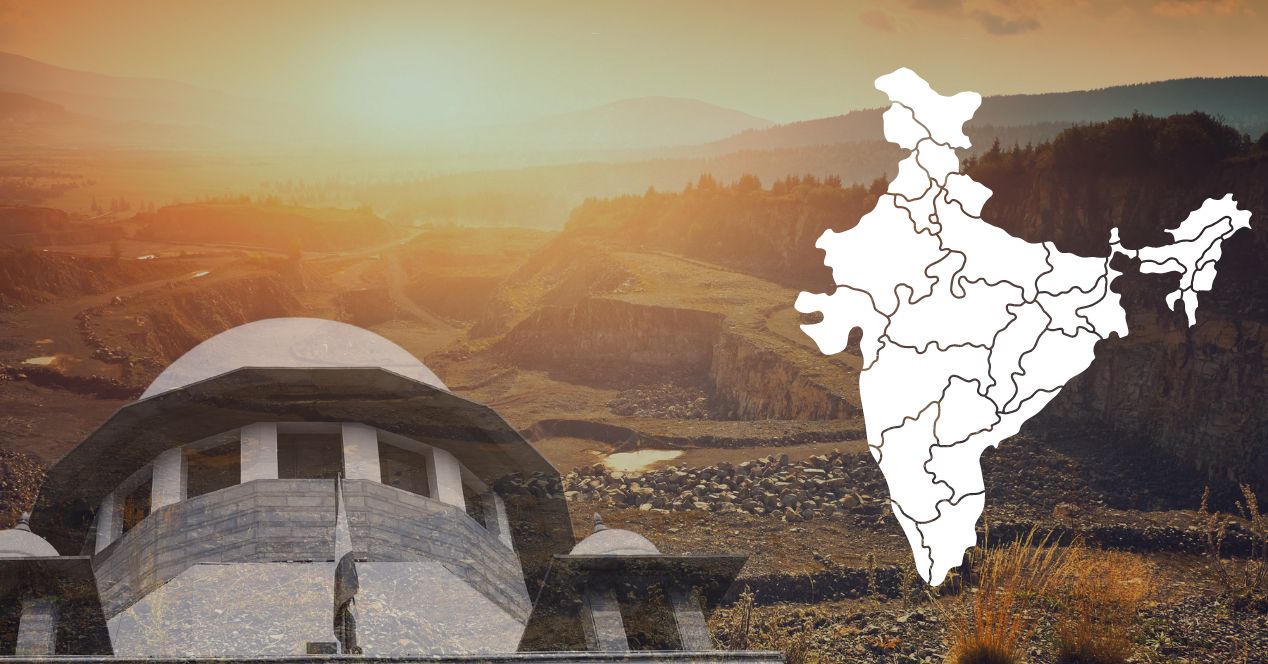
Analysis
A new avenue for state revenue
A nine-judge bench in one of the longest pending cases confirmed that only states have the power to tax mineral-bearing land
28th Jul 2024
More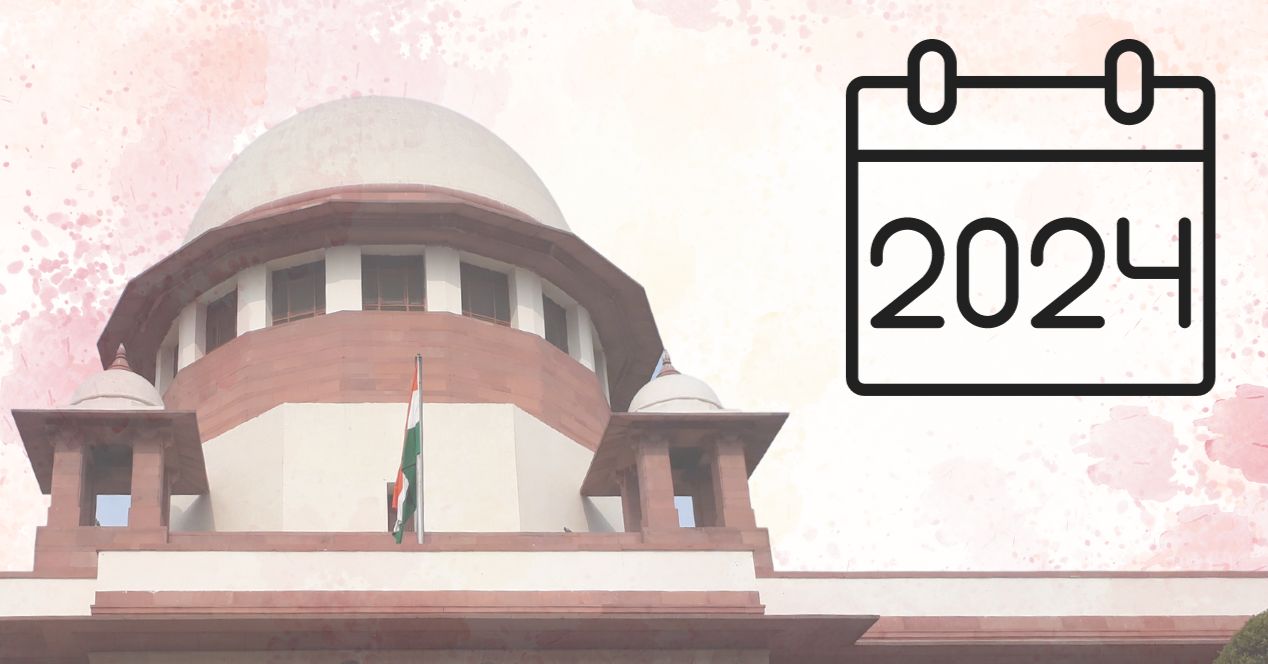
Analysis
Listing dates for upcoming seven and nine-judge bench cases
The Court is expected to hear all seven and nine-judge matters in the first quarter of 2024.
25th Oct 2023
More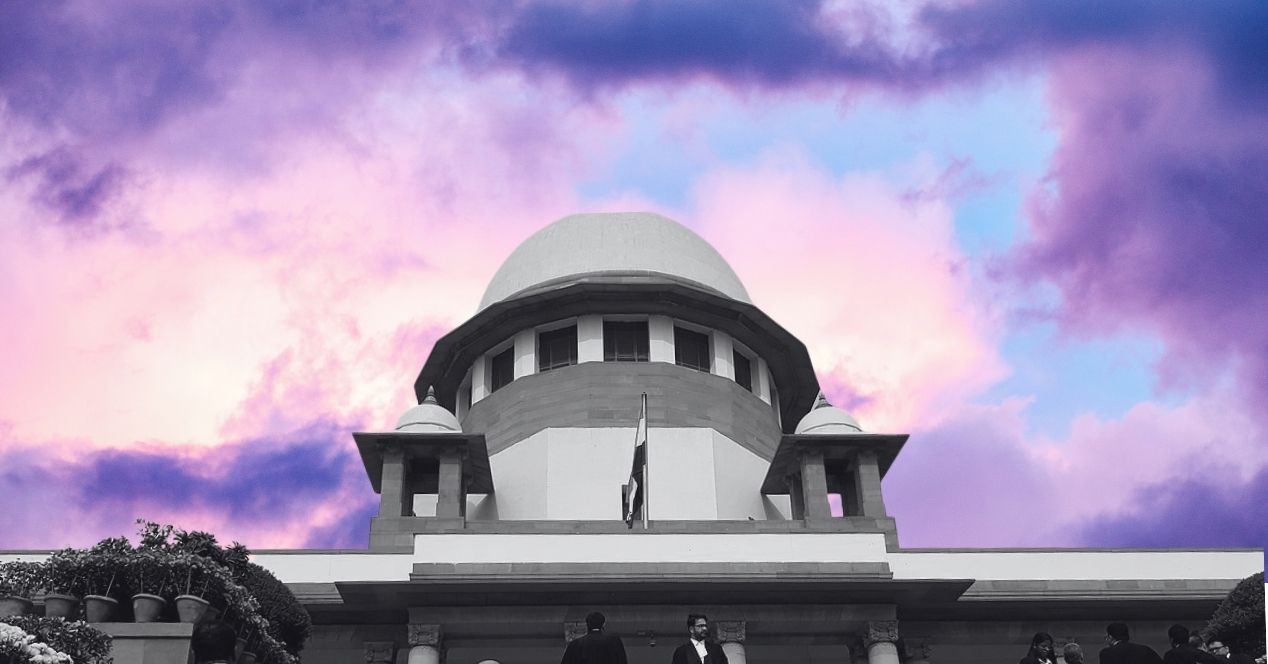
Analysis
Constitution Benches Settle on Five Cases to be Heard in September
The cases involve questions of Reservations, Remission, Taxation and Service Rules.
30th Aug 2022
Morecases
Mineral Area Development Authority v Steel Authority of India
In a 8:1 majority, a nine-judge Constitution Bench held that state government's can impose tax on mines and minerals. It observed that "royalty" is distinct from tax.
MoreLast Updated:
Bench:D.Y. Chandrachud CJI, Hrishikesh Roy J, A.S. Oka J, B.V. Nagarathna J, J.B. Pardiwala J, Manoj Misra J, Ujjal Bhuyan J, S.C. Sharma J, A.G. Masih J
Arjun Flour Mills v State of Orissa
The Supreme Court will decide whether state governments are constitutionally permitted to collect sales tax based on annual turnover.
MoreNext Hearing: January 9, 2024
Last Updated:
Bench:D.Y. Chandrachud CJI, S.K. Kaul J, Sanjiv Khanna CJI, B.R. Gavai J, Surya Kant J, J.B. Pardiwala J, Manoj Misra J
M/S Shanti Fragrances v Union of India
The Supreme Court held that there was no conflict between the two Judgments that the reference Judgment said were contradictory. Further, the Bench held that Judgments can only be overturned by a larger Bench and the number of Judges in the majority does not matter when determining the precedential value of a decision.
MoreLast Updated:
Bench:Indira Banerjee J, Hemant Gupta J, Surya Kant J, M.M. Sundresh J, Sudhanshu Dhulia J
Gujarat Shrine Restoration
Decided
State of Gujarat v Islamic Relief Committee of Gujarat
The Court held that diversion of tax proceeds for restoring religious shrines destroyed even due to State's negligence violates the principles of Secularism. The court underlined a conception of Secularism based on Strict Separation principle. Additionally, the court further hinted that compensation can be sought only for violation of Right to Life and not for other fundamental rights.
MoreLast Updated: 20180829
Bench:P.C. Pant J, Dipak Misra CJI
